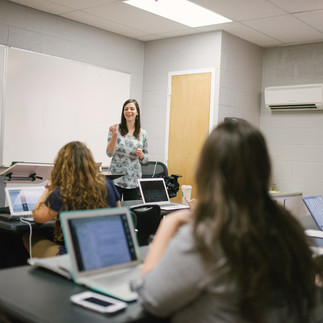
Jesus’ words “Let the little children come to me,” teaches us that no one is so important that they can't take time to consider the needs of children. With this understanding, we are deeply concerned with children’s health needs and work proactively to create an environment that promotes their wellness. We are daily preoccupied with this great task as we serve the children and families in our own community. This practice locally keeps us sharp for global implementation, in any of our regions.
WHAT DO WE DO?
Education
Education is at the heart of all our efforts. We offer health seminars to children, parents, health care workers, and teachers in order to address pertinent children’s health issues and questions that have arisen within our community, our neighborhood, and in our work abroad.
Seminar topics include: Vaccinations, Elderberry Syrup Use, CPR & First-Aid, Nutrition, Hygiene and Sanitation, Malaria Prevention, Diagnosis & Treatment, HIV/AIDS Prevention, and Natural Remedies.
Family Care
Our health care team responds to the case of a sick child by visiting the family at their home. This is in contrast to transporting the fragile child to an uncomfortable room so they can wait.
Given the number of children we have, the health care team responds to a variety of calls ranging from second-degree burns to strep throat to ringworm. Utilizing their knowledge and experience, Registered Nurse Amanda Aaseby and Family Nurse Practitioner Jaimee Arroyo are an invaluable resource for parents deciding whether or not their sick or injured child needs to go to the ER, or needs to be seen in a doctor’s office, or could be helped by someone on our team.
We also routinely assist our international cooperatives by helping them assess their sick children, either empowering them as parents to treat their child, or connecting them with the proper medical professional.
Advocacy
We equip health advocates with the knowledge and skills necessary to partner with parents in securing the care that their children need. This is why we study pharmacology and primary health care, in addition to gaining skills in bedside care and foreign language. Many of those we work with do not speak English, so translation is a needed skill that we provide. Practically, this activity lends itself toward accompanying parents on doctor visits, and periodically, emergency rooms to assist in helping them make informed decisions about their child's health.
While in India, Nick Moore had an opportunity to serve as a bedside advocate for an orphan named Bura; as he was responsible for his post-surgical care. Reflecting on the experience, Moore said...
Public Health
In addition to offering educational seminars, our clinical and public health workers have implemented children’s health protocols unique to our communal needs. These guidelines assist parents in determining when their sick child is able to return to school or participate in communal events. These same considerations are taught abroad.
We have also created protocols for the Academy for G.O.D. and our children’s Early Education Program that help tutor students and teachers into healthy practices which limit the spread of disease.
Over the years, after evaluating the particular practices of our own community, we were able to implement specially tailored protocols for effective prevention. We experienced unprecedented health in that season.
Laurie Kagay, mother of two and a teacher, celebrated saying, “My family (specifically my kids) made it an entire semester without getting sick! When they're sick it's especially stressful for me, as I still have to find a way to teach. This is the first semester that I’ve made it through without one doctor’s visit! I’m thankful for our health care team, my kids' teachers who faithfully implement protocols and the Lord for this success.”
“Performing surgery might fix the physical issue, but providing patients with consistent caretakers who are capable of advocating and ensuring their needs are met can bring even greater health–allowing them to place trust in another human being, and believing that they themselves are worthy of such quality care. I am happy to play this role for those, like Bura, who are without a caretaker. I know Bura isn’t the only one in need. I also know that I am not the only one who can do this job.”
— Nick Moore
WHO DO WE DO IT FOR?
In addition to our community, we also work with lower-income children in the greater Nashville area. Through Students Living A Mission, we offer nutrition seminars to inner-city, immigrant and refugee kids.
We participate in caring for our regional cooperatives’ children abroad, who otherwise have limited access to health education, diagnostics, and treatment. We also facilitate health seminars for impoverished children and their families on pertinent health issues and help educate children on hygiene practices like hand-washing and bathing.
Recently, we specifically tailored a health program for a teenage girl with sickle-cell anemia to ensure that she receives thorough care. We have empowered her parents with a better understanding of her condition and together, we continue to address any health complications as they arise.
Our services are very expansive in the 3rd world environment. Particularly because these are the places where there is no doctor. We have had to do a variety of work related to conditions of the poor; a variety of skin diseases, tropical diseases, and wound care.
HOW ARE WE LEARNING/GROWING?
Our children’s health program has grown not only in size, but in range and quality of service, as more people have chosen to respond to the vast health needs that exist worldwide. While our health team consists of RNs, LPNs, EMTs, CNAs, FNPs, doulas, CBEs and midwives, we understand that the needs are expansive and there is always much to learn. Through both formal and informal opportunities, we all continue to further our knowledge and skill sets for enhanced competency.
Examples include apprenticeships, skills workshops, local and national conferences/seminars, research, further training at the university level, working in local and international clinics and hospitals.
PROGRAMS
As more individuals are implementing disciplines like epidemiology and preventative medicine, we have designed programs tailored to specific groups of need in order to see entire communities of children experience greater health. A student attending our Institute would get a very well-rounded experience for a health care practice in the 3rd world.



















Comentarios